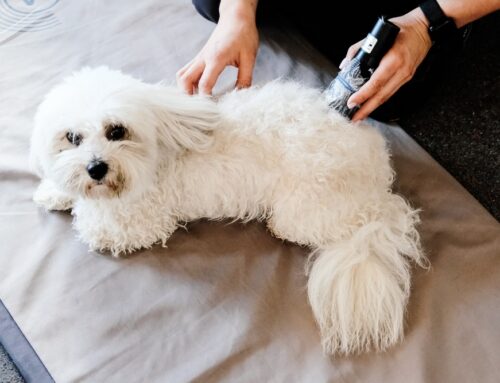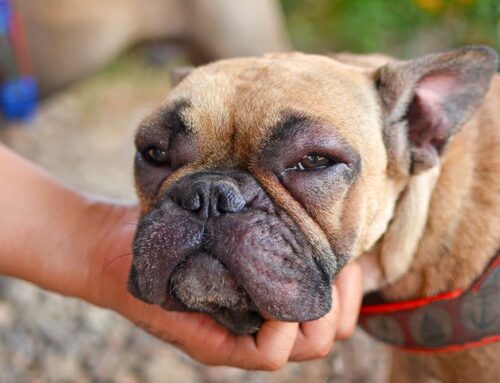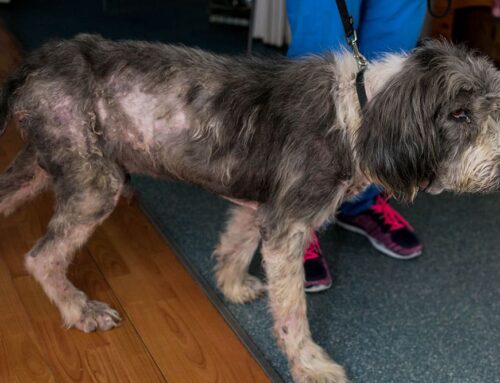As summer rolls into Denville, New Jersey, longer days and warmer weather offer plenty of reasons to get outside and enjoy the season. But while many of us look forward to hikes, BBQs, and beach days, hot weather can bring serious health risks for our pets. Heatstroke, dehydration, sunburn, and even paw pad burns are all common summertime hazards.
At MountainView Veterinary Hospital, we believe that proactive care is the best way to keep your pets safe, comfortable, and thriving through the summer months. Whether you’re a first-time pet parent or a seasoned animal lover, here’s what you need to know to protect your pet from heat-related emergencies.
Why Pets Struggle with Heat More Than People
Unlike humans, pets can’t sweat to regulate their body temperature. Dogs and cats cool down by panting and sweating minimally through their paw pads. Combine that with fur coats, high humidity, and the inability to seek shade or hydration on their own, and you’ve got a recipe for danger.
Your pet relies on you to:
- Provide access to clean, cool water at all times
- Offer shade and a cool resting place
- Know when it’s too hot for outdoor activities
Never leave your pet in a parked car, even with the windows cracked. Temperatures can rise to life-threatening levels in minutes.
Grooming also plays a critical role in summer safety. Long-haired and double-coated pets may benefit from a professional groom to remove mats and excess undercoat that can trap heat.
At-Risk Pets: Who Needs Extra Attention?
Some pets are more vulnerable to heat-related illness than others. Keep an especially close eye on:
| Risk Group | Why They’re at Risk |
| Flat-faced (brachycephalic) breeds | Pugs, Bulldogs, and Persian cats struggle to breathe efficiently in the heat. Learn more |
| Overweight pets | Extra body fat traps heat and impairs circulation |
| Seniors & pets with heart/lung conditions | Reduced ability to adapt to heat and stress |
| Dark-coated animals | Absorb more solar radiation |
| Thick-coated breeds | Struggle to release heat trapped in dense fur |
Easing into Summer: Safe Seasonal Transitions
Jumping straight from winter hibernation to summer hikes? Not so fast. After months of inactivity, pets need time to condition their bodies to handle increased activity and heat.
Transition Tips:
- Begin with short walks in the early morning or late evening
- Avoid midday heat (10 AM–4 PM)
- Watch for soft paw pads vulnerable to burns
- Schedule a grooming appointment to remove the winter coat
For more paw protection advice, read Walking On Sunshine: Protecting Pet Paws
Heatstroke: Spotting the Danger Before It’s Too Late
Heatstroke can progress rapidly and may be fatal without prompt treatment.
Early Signs:
- Heavy panting
- Drooling
- Lethargy or restlessness
- Seeking shade
Severe Signs:
- Vomiting or diarrhea
- Red or pale gums
- Disorientation or seizures
- Collapse
Emergency Actions:
- Move your pet to shade
- Offer cool (not ice-cold) water
- Apply damp towels to paws, groin, and belly
- Use a fan or AC
- Call your veterinarian immediately
Too Hot to Handle: Heatstroke in Pets
Why Post-Heatstroke Monitoring Matters
Even if your pet seems better after a heat episode, internal damage may continue silently.
Possible Complications:
- Kidney failure
- Liver damage or clotting disorders (DIC)
- Neurological injury (brain swelling, seizures)
- Intestinal injury (bloody diarrhea, sepsis)
Monitor closely for 24–72 hours and follow up with your vet.
Other Summertime Conditions to Watch
Sunburn
Light-colored pets and those with thin coats are especially prone to sunburn—on their nose, ears, and belly.
Pets and Sunscreen Myths – ASPCA
Do Dogs Need Sunscreen? – NBC News
Burned Paw Pads
Decks, pavement, and even beach sand can reach dangerous temperatures. Try breathable booties.
Ocular Damage
Pets with pannus (especially German Shepherds) can suffer from sun-induced eye inflammation. Consider Doggles for sensitive eyes.
Beat the Heat with Smart Cooling Tactics
Water Play Ideas:
- Kiddie pools and sprinklers
- Shaded hose-down areas
- Controlled swimming in safe water bodies
DIY Enrichment:
- Freeze broth, berries, or kibble in molds
- Frozen Kong toys with yogurt or peanut butter
Cooling Products:
- Cooling bandanas, beds, and vests
- Ice packs or cold water bottles wrapped in towels
Keeping Cool: Summer Boredom Busters for Pets
Outdoor Adventures: Best Practices
- Always walk during cooler hours
- Pack extra water and a travel bowl
- Take breaks in the shade
- Don’t push senior or flat-faced pets
- Be mindful of the excitement level during hikes or trips to the lake
Stay Cool Inside, Too
Your home can be a haven from the heat with a few thoughtful adjustments:
- Use fans or air conditioning
- Provide access to tile or hardwood floors
- Keep windows shaded
- Rotate cool spots throughout the day
Indoor Fun Ideas:
- Puzzle feeders
- Scavenger hunts with kibble
- Training games or scent work
Outdoor Cat Tips for Hot Weather
Outdoor cats need extra support to stay safe:
- Offer water in multiple shady spots
- Use shallow dishes that stay cool
- Encourage indoor rest during peak heat hours
Cool Cats: Summer Tips for Outdoor Cats – AAHA
Beyond Heatstroke: Other Summertime Threats
| Risk | Why It’s Dangerous |
| BBQ foods | Onions, grapes, fatty meats, and bones can be toxic or cause obstructions |
| Fireworks | Trigger fear-based escapes or anxiety |
| Parasites | Fleas, ticks, and mosquitoes are in full swing |
| Insect stings | Bee and wasp stings can cause allergic reactions |
| Snakes | Venomous bites increase during summer hikes |
Snake Safety by Region – CroFab
6 Summertime Dangers for Pets – AAHA

Final Takeaways for a Safe Summer
- NEVER leave pets in parked vehicles
- Consider humidity and heat index, not just temperature
- Offer continuous access to water and shade
- Go slow with unfit pets reentering activity
- Pay attention—pets don’t always show signs of overheating until it’s too late
Schedule Your Pet’s Summer Wellness Visit
At MountainView Veterinary Hospital, we’ve proudly served the Denville community for decades. We know just how intense New Jersey summers can be, and we’re here to support you and your pet every step of the way.
From seasonal wellness checks and parasite prevention to urgent heatstroke care, our team is ready to help your pet stay safe all summer long.
Book an appointment today or learn more about our practice and history at mtnviewvets.com.
Stay safe, stay cool, and enjoy every sunny moment with your four-legged friend.









Leave A Comment